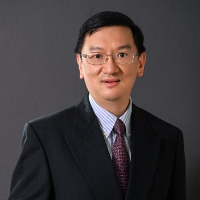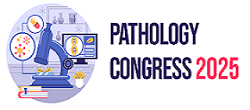Pathology Congress 2025

The Chinese University of Hong Kong, Hong Kong
Title : Microbes at the Gut-Skin Axis Modulate Eczema Phenotypes: Implications for New Treatment Approaches
Abstract:
Microbes at different mucosal sites is a potent driver of immunological maturation. For eczema, there is growing evidence that microbes at the gut-skin axis interact among themselves and with the host to influence clinical manifestations of this prevalent skin disease. A healthy microbiome competes with pathogens, improves nutrient metabolism, enhances gut barrier integrity and regulates immune system maturation. Dynamic interactions exist between microbes, the immune system and food allergens that may lead to innate and adaptive tolerance, and any disruption of such ‘balanced’ microbiota in early-life will adversely affect health later in life. Decreased Bifidobacterium and Enterococci in dysbiotic stool microbiome from children with eczema prompts my team to design a novel probiotic formulation called SIM03 that replenished the relevant Bifidobacterium. My team has just completed a clinical trial that showed this probiotic to be useful in ameliorating eczema severity and improving quality of life of Chinese preschool children. Evidence for the importance of microbiome at other body sites is limited. Our birth cohort revealed substantial temporal variations in skin microbiota during the first 12 months. Infants with persistent eczema had lower microbial biodiversity than those with transient eczema. Our metagenomics data revealed inverse relationship between eczema severity and microbial biodiversity. Early-phase clinical trials reported that the transfer of lantibiotic-producing coagulase-negative staphylococci suppressed Staphylococcus aureus growth and ameliorated eczema severity. In conclusion, microbiota at the gut-skin axis determine the severity and persistence of childhood eczema. Knowledge about microbial uniqueness and compositions is employed to design targeted biotherapy for eczema.
Biography:
Professor Leung
graduated from The Chinese University of Hong Kong in 1992, and he received
subspecialty training on Immunology and Allergy in the Hospital for Sick
Children in Toronto, Ontario, Canada in 1997-1998. Professor
Leung is currently a professor in Department
of Paediatrics at The Chinese University of Hong Kong, and a visiting professor
in the Central South University in mainland.
He is Immediate Past
President of Hong Kong Society for Paediatric Immunology, Allergy and
Infectious Diseases. His main research interests include natural
history, novel diagnostics and host-microbe interactions for allergic
diseases. He published more than 420 peer-reviewed journal
articles.
